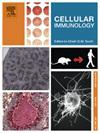Fibrinogen regulates microglial function through the JAK2/STAT3 signaling pathway
IF 2.9
4区 医学
Q2 CELL BIOLOGY
引用次数: 0
Abstract
Background
Neuroinflammation, a defining feature of numerous neurological disorders, arises predominantly from activating immune cells such as microglia, which play a critical role in maintaining homeostasis within the central nervous system. Microglial activation and polarization exhibit a dual nature, mediating both neuroprotective and neurotoxic effects. Fibrinogen, as a potent pro-inflammatory mediator, interacts with microglia and is implicated in the progression of various neurological conditions. This study investigates the effects of fibrinogen and the exogenous STAT3 inhibitor cryptotanshinone on primary microglial function.
Methods
Primary microglial cells were isolated from neonatal C57BL/6 mice and subsequently treated with fibrinogen and the STAT3 inhibitor cryptotanshinone. Inflammatory marker expression was quantified by quantitative polymerase chain reaction, while protein levels of JAK2 and STAT3 were determined using immunofluorescence and Western blot analysis.
Results
Fibrinogen exposure upregulated STAT3 and JAK2 phosphorylation in primary microglial cells. Cryptotanshinone treatment effectively attenuated STAT3 phosphorylation while concurrently downregulating JAK2 activation. Furthermore, fibrinogen significantly enhanced the release of pro-inflammatory cytokines, such as IL-6 and IL-1β, while the transcription levels of TGF-β remained unchanged.
Conclusions
This study demonstrates that fibrinogen stimulates the production of pro-inflammatory cytokines in primary microglial cells by activating the JAK2/STAT3 signaling pathway. These findings provide mechanistic insights into fibrinogen-induced neuroinflammation and suggest potential therapeutic targets for neurological diseases.
纤维蛋白原通过JAK2/STAT3信号通路调控小胶质细胞功能
背景:神经炎症是许多神经系统疾病的一个典型特征,主要由激活免疫细胞(如小胶质细胞)引起,小胶质细胞在维持中枢神经系统内的稳态中起着关键作用。小胶质细胞的激活和极化表现出双重性质,介导神经保护和神经毒性作用。纤维蛋白原作为一种有效的促炎介质,与小胶质细胞相互作用,并与各种神经系统疾病的进展有关。本研究探讨纤维蛋白原和外源性STAT3抑制剂隐丹参酮对原发性小胶质细胞功能的影响。方法分离新生C57BL/6小鼠的原代小胶质细胞,并用纤维蛋白原和STAT3抑制剂隐丹参酮处理。采用定量聚合酶链反应定量检测炎症标志物表达,采用免疫荧光和Western blot分析检测JAK2和STAT3蛋白水平。结果纤维蛋白原暴露可上调原代小胶质细胞中STAT3和JAK2的磷酸化。隐丹参酮治疗有效地减弱STAT3磷酸化,同时下调JAK2激活。此外,纤维蛋白原显著增强IL-6、IL-1β等促炎细胞因子的释放,而TGF-β的转录水平保持不变。结论纤维蛋白原通过激活JAK2/STAT3信号通路刺激原代小胶质细胞产生促炎细胞因子。这些发现为纤维蛋白原诱导的神经炎症提供了机制见解,并为神经系统疾病提供了潜在的治疗靶点。
本文章由计算机程序翻译,如有差异,请以英文原文为准。
求助全文
约1分钟内获得全文
求助全文
来源期刊

Cellular immunology
生物-免疫学
CiteScore
8.20
自引率
2.30%
发文量
102
审稿时长
30 days
期刊介绍:
Cellular Immunology publishes original investigations concerned with the immunological activities of cells in experimental or clinical situations. The scope of the journal encompasses the broad area of in vitro and in vivo studies of cellular immune responses. Purely clinical descriptive studies are not considered.
Research Areas include:
• Antigen receptor sites
• Autoimmunity
• Delayed-type hypersensitivity or cellular immunity
• Immunologic deficiency states and their reconstitution
• Immunologic surveillance and tumor immunity
• Immunomodulation
• Immunotherapy
• Lymphokines and cytokines
• Nonantibody immunity
• Parasite immunology
• Resistance to intracellular microbial and viral infection
• Thymus and lymphocyte immunobiology
• Transplantation immunology
• Tumor immunity.
 求助内容:
求助内容: 应助结果提醒方式:
应助结果提醒方式:


